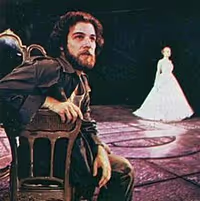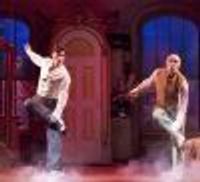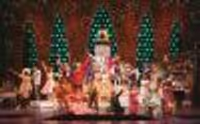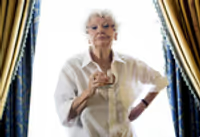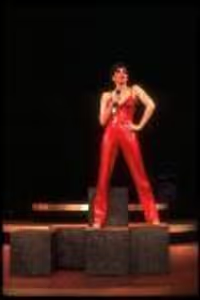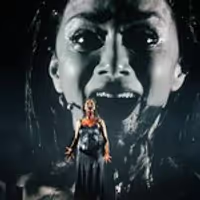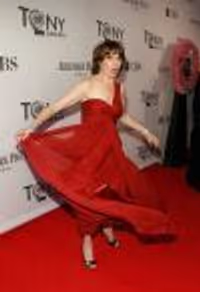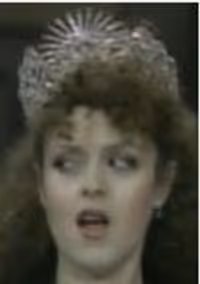CONFIRMED: Audra McDonald-led GYPSY to begin previews Nov 2024
hearthemsing22
Broadway Legend Joined: 2/14/20
#475Audra McDonald-led GYPSY for 2024-2025 Season!
Posted: 5/31/24 at 2:53pm
I hope we also get a big lavish set for this, but with Broadways track record as of late I doubt it
#476Audra McDonald-led GYPSY for 2024-2025 Season!
Posted: 5/31/24 at 3:07pm
Wolfe is certainly not a minimalist, and he has a very keen understanding of theatricality. I am not at all worried about how this production will look or be staged.
I mean, the act 1 finale of Shuffle Along alone, when we suddenly have a full recreation of the original production… it was one of the most thrilling things I’ve ever seen onstage.
#477Audra McDonald-led GYPSY for 2024-2025 Season!
Posted: 5/31/24 at 3:08pm
Agreed, there’s a lot of subtext to unpack here. The thought of a white Herbie/black Rose is what excites me the most. I think th dynamic is the weakest in the show (hard not to be when you’re dealing with some incredible book writing for the other relationships), and adding an additional layer will really drive home some subtext here.
Updated On: 5/31/24 at 03:08 PM#478Audra McDonald-led GYPSY for 2024-2025 Season!
Posted: 5/31/24 at 3:58pm
It really would add a potent texture to Rose's perspective - the "born to soon" line she speaks just before "Rose's Turn", the agony of living out your dreams vicariously through your children because you seen in them a chance the world never gave you...
I think Isabelle McCalla could make a wonderful Louise for this reason -- killer actress, self-professed student of Judy Garland and the vaudeville origins of musical theatre with a voice to fit, looks like a performer who could have believably "passed" in the 30s/40s.
babyjunegem
Understudy Joined: 12/1/21
#479Audra McDonald-led GYPSY for 2024-2025 Season!
Posted: 5/31/24 at 4:48pm
I'm puzzled by the desire to make Herbie white and make colorism between June and Louise a focal point of the show. Why is the latter in particular necessary? This show will need Black theatergoers to keep it alive once the usual Broadway crowd has come through. Adding the colorism elements comes across as condescending. We know it exists, and we don't want to be beaten over the head with it. I would hope that Wolfe doesn't go for such low hanging fruit.
The last thing this production needs is to be self-conscious about race. The lives of Black people are just as complicated as everyone else's.
#480Audra McDonald-led GYPSY for 2024-2025 Season!
Posted: 5/31/24 at 5:36pm
From the casting breakdown released today:
BREAKDOWN
GYPSY (Broadway)
SYNOPSIS: Rose, an ambitious “backstage” mother, treks across the country with her daughters searching for both survival and success with their homespun vaudeville act. Along the way, they encounter others in the shabby theaters they perform in who are similarly burdened by finding their own ways of surviving in show business. As times change, Rose is forced to adapt as vaudeville is replaced by burlesque even as her daughters find autonomy in radically different ways.
SEEKING:
[ROSE] CAST. 40s. Overbearing. Charismatic. Powerful. Strong. Suffocating. Aggressive. Domineering. Pushy. Ambitious. Loving. Longing. Survivor. Brassy. Stage Mother. Driven.
[HERBIE] 40 to 50 years old. White. Male identifying. Baritone. Once active in showbusiness himself, he is now a candy salesman who becomes Baby June’s manager for her vaudeville show act, and falls in love with her mother, Rose. He is a devoted lover, who has a seemingly boundless level of patience for Rose’s antics and demands, and he is also incredibly caring toward her girls; invested not only in the success of their act but in their well-being as individuals. He tries time and time again to get Rose to marry him, but when they finally agree on a wedding day, Rose shoves her older, less talented daughter Louise into the world of burlesque, leaving Herbie resigned that Rose’s desire for attention and fame will never allow her to live a simple, married life with him. Baritone range.
[LOUISE] 18+ to play Teens through 20s. Black. Female identifying. Mezzo-Soprano with a high chest extension. Initially shy and introverted, she ultimately becomes a star. She is a quiet, intelligent young woman who has none of her younger sister June’s natural ability to put on a show. When she is thrust into a burlesque show by her mother, she transforms into a legendary stripper. Louise’s transformation from awkward teenager who has always been told she was a failure at everything to confident star of burlesque must be navigated with nuance and depth with skill and complexity.
[JUNE] 18+ to play Teens through 20s. Biracial; her mother is Black and her father is White. Female identifying. Mezzo Soprano with a high chest extension. Although she is in her mid-teens, Dainty June is a gifted and willful young woman, who ultimately refuses to continue perpetuating the “baby doll” persona she has carried with her since she was a young girl. Because she has opportunities to be accepted into mainstream show business, she elopes with Tulsa, one of the chorus boys in her act, to begin building a career on her own.
[YOUNG LOUISE] 10 to 12 years old. Black. Female identifying. Mezzo-Soprano. Young Louise struggles with the family’s focus on show business, as she is awkward, gangly, and painfully shy. Her awkwardness is capitalized upon by her mother, who shoves her in the chorus of boys who support her sister’s vaudeville act. Possesses a hidden strength that is often overshadowed by the presence of her extroverted younger sister. A strong singer and dancer.
[BABY JUNE] 8 to 11 years old. Biracial; her mother is Black and her father is White. Female identifying. Mezzo Soprano. Savvy and outgoing, Baby June is the perfect child star, eager and extroverted. Has a strong, bright voice and the ability to carry solo singing. Strong dance skills, including a background in ballet and gymnastics.
[TESSIE TURA] Late 30s - 50. Any Ethnicity. Female identifying. Mezzo Soprano. A professional stripper whose “gimmick” is being a ballerina. She has a lot of stripping experience under her belt, and is extremely jaded about taking her clothes off in front of men. She thinks she’s figured out the one and only way for a stripper to capture and maintain attention: to have a gimmick. She's a bit blasé about how she passes this wisdom onto Louise. NOTE: This role will likely double with additional ensemble roles. Experience dancing en pointe a major PLUS.
[MAZEPPA] Late 30s - 50 years old. Any Ethnicity. Female identifying. Mezzo Soprano. Trumpet Player a big PLUS. Mazeppa is a brash and ballsy burlesque performer whose “gimmick” is that she plays the trumpet while she strips. A tough and funny broad. NOTE: This role will likely double with additional ensemble roles.
[ELECTRA] Late 30s - 50 years old. Any Ethnicity. Female identifying. Mezzo Soprano. She is a burlesque performer whose gimmick is that her costume is covered in light bulbs (thus, the name). Her act involves some multi-tasking, controlling the light show while singing and dancing. Strong comedic character. NOTE: This role will likely double with additional ensemble roles.
[POP] 60s. Black. Male identifying. Pop is Mama Rose’s father, who never believed that his daughter or her girls would amount to anything. He is a pragmatist, religious and unforgiving. While this is a non-singing role the actor will likely sing in the ensemble and double with additional ensemble roles.
[TULSA] Late Teens - 20s years old. White. Male identifying. Baritone. Strong, athletic dancer (especially Tap). An ambitious, charismatic dreamer. Tulsa is a born performer, who has the presence and talent to command the stage by himself.
[L.A., EAST ST. LOUIS, KANSAS, LITTLE ROCK, YONKERS] 20s. White. Male identifying. Baritones and Tenors. The young men in Baby June's act. Hand-picked by Rose. Strong singers and strong, athletic dancers.
[AGNES] 20s. White. Female identifying. Soprano. Mezzo-Soprano. Alto. Agnes is a member of Madame Rose’s Toreadorables and one of the girls who Rose recruits to be in the act she threw together for Louise. Agnes is thrilled at the prospect of being an actress. A young, comedic character who sings and moves well.
[MADAME ROSE'S TOREADORABLES] 18+ to play Teens - Early 20s. White. Female identifying. Soprano, Mezzo-Soprano, Alto. The girls in Madame Rose’s Toreadorables, backup singers and dancers to Louise, who become “Rose Louise and Her Hollywood Blondes”.
[THREE NEWSBOYS] 10 to 12 years old. Black. Singing and dancing young boys who backup Dainty June’s vaudeville act. Strong dancers and singers.
[MALE ENSEMBLE] 30s - 50s. Male identifying. A variety of ensemble roles including CIGAR, a burlesque theater manager in Wichita; PASTEY, a burlesque stage manager in Wichita; GEORGIE, Uncle Jocko’s assistant; PHIL, a press agent, and BOURGERON-COCHON, a famous French photographer.
[FEMALE ENSEMBLE] 30s-50s, Female identifying. Members of the ensemble play mothers of auditioning children, waitresses, backstage personalities, and showgirls.
#481Audra McDonald-led GYPSY for 2024-2025 Season!
Posted: 5/31/24 at 5:48pm
I think having Louise be black and June biracial is interesting. Do they always have different fathers? I know the script doesnt day, but I feel like I havent seen anyone suggest that before. And on that note, Tulsa being white is also an interesting dynamic and politics.
#482Audra McDonald-led GYPSY for 2024-2025 Season!
Posted: 5/31/24 at 5:57pm
Well that answers the questions of race! Makes total sense.
To sum it up for those who don't want to scroll:
- Herbie - white
- Louise - Black
- June - Biracial
- Gimmick Trio - any race
- Tulsa, L.A., East St. Louis, Kansas, Little Rock, Yonkers (aka, the boys in the act) - white
- Agnes and Madame Rose’s Toreadorables - white
- Three newsboys - Black
#483Audra McDonald-led GYPSY for 2024-2025 Season!
Posted: 5/31/24 at 6:24pm
babyjunegem said: "I'm puzzled by the desire to make Herbie white and make colorism between June and Louise a focal point of the show. Why is the latter in particularnecessary? This show will need Black theatergoers to keep it alive once the usual Broadway crowd has come through. Adding the colorism elements comes across as condescending. We know it exists, and we don't want to be beaten over the head with it.I would hope that Wolfe doesn't go for such low hanging fruit.
The last thing this production needs is to be self-conscious about race. The lives of Black people are just as complicated as everyone else's."
I think merely casting the show in a color-conscious way would do any and all of the work needed to add the nuance. I don't think the book or lyrics need to be changed so characters explicity talk about it or otherwise bang us over the head with it. The fact that we know colorism exists in the time these events take place is enough to let the audience make their own connections and possibly discover a new dynamic in a story of "struggling to make it/prove your worth" that we thought we'd already seen.
Like your favorite second act reprise, when a song we’ve already heard takes on a powerful new meaning once there’s a new context. The words are the same, but the way we react to them shifts.
#484Audra McDonald-led GYPSY for 2024-2025 Season!
Posted: 5/31/24 at 6:48pm
someoneinatree2 said: "Like your favorite second act reprise, when a song we’ve already heard takes on a powerful new meaning once there’s a new context. The words are the same, but the way we react to themshifts."
Beautifully said.
It will make for a much sharper production to be deliberate about these choices, rather than doing things willy-nilly or "color blind" casting.
The only complication is on the management side because that means they have to make sure there are enough understudies to appropriately cover each role. (i.e. a Toreadorable cannot understudy Louise or June; Pop cannot understudy Herbie; etc) But that's for them to deal with, not us!
Petitioning now for George Wolfe to say "you ain't gettin' 88 cents from me, Rose!" on the cast album, in the tradition of Sondheim and Laurents.
babyjunegem
Understudy Joined: 12/1/21
#485Audra McDonald-led GYPSY for 2024-2025 Season!
Posted: 5/31/24 at 6:50pm
someoneinatree2 said: "babyjunegem said: "I'm puzzled by the desire to make Herbie white and make colorism between June and Louise a focal point of the show. Why is the latter in particularnecessary? This show will need Black theatergoers to keep it alive once the usual Broadway crowd has come through. Adding the colorism elements comes across as condescending. We know it exists, and we don't want to be beaten over the head with it.I would hope that Wolfe doesn't go for such low hanging fruit.
The last thing this production needs is to be self-conscious about race. The lives of Black people are just as complicated as everyone else's."
I think merely casting the show in a color-conscious way would do any and all of the work needed to add the nuance. I don'tthink the book or lyrics need to be changed socharacters explicity talkabout it or otherwise bang us over the head with it. The fact that we know colorism existsin the timethese events take place is enough to let the audience make their own connections and possibly discover a new dynamic in a story of "struggling to make it/prove your worth" that we thought we'd already seen.
Like your favorite second act reprise, when a song we’ve already heard takes on a powerful new meaning once there’s a new context. The words are the same, but the way we react to themshifts."
I understand how it can seem more powerful, but I think this nuance can still be achieved with an all Black cast (or at least for the core roles). What ever happened to trusting the actors?
I bought my tickets as soon as Audra was announced, but I was excited to see this great American musical with family without getting yet another reminder of how light skinned folks have it better in the world. We've seen this narrative play out time and time again.
Wasn't there an opportunity explore more of the moral ambiguity of show business than DreamGirls did? I'm starting to wonder WHO this production is for if it's just going to state the obvious.
#486Audra McDonald-led GYPSY for 2024-2025 Season!
Posted: 5/31/24 at 6:54pm
Maybe wait six months until it opens before making snap judgments about the production.
#487Audra McDonald-led GYPSY for 2024-2025 Season!
Posted: 5/31/24 at 8:22pm
ErmengardeStopSniveling said: "
Petitioning now for George Wolfe to say "you ain't gettin'88 cents from me, Rose!" on the cast album, in the tradition of Sondheim and Laurents."
And it wouldn’t be the first time Wolfe had had a vocal cameo on a cast album- he’s also got one on the recording for The Wild Party.
#488Audra McDonald-led GYPSY for 2024-2025 Season!
Posted: 5/31/24 at 8:34pm
Kad said: "ErmengardeStopSniveling said: "
Petitioning now for George Wolfe to say "you ain't gettin'88 cents from me, Rose!" on the cast album, in the tradition of Sondheim and Laurents."
And it wouldn’t be the first time Wolfe had had a vocal cameo on a cast album- he’s also got one on the recording for The Wild Party."
WISH HE HAD ONE ON THE SHUFFLE ALONG ALBUM 😭
spicemonkey
Broadway Star Joined: 6/3/18
#489Audra McDonald-led GYPSY for 2024-2025 Season!
Posted: 5/31/24 at 9:18pm
Kad said: "Jordan Catalano said: "I still hope if Audra gets a week off at some point, Tonya Pinkins fills in."
I kind of think Pinkins may have burned every last bridge she had in this industry."
What has happened?
Peter Barker
Chorus Member Joined: 12/6/23
#490Audra McDonald-led GYPSY for 2024-2025 Season!
Posted: 5/31/24 at 9:42pm
Race, racism, colorism. If some of the commenters here were part of a pre-announcement viability focus group, Audra in Gypsy would never happen. The speculations about the direction this production might take raise a few interesting possibilities, but I say scrap all that and open the musical with a giant mirror, a la Cabaret.
When Pearl Bailey was cast in the role of Dolly Levi, rather than address any racial/social issues, producer David Merrick simply turned Hello, Dolly! into an All Black extravaganza. Pearl Bailey won a special Tony Award. The year was 1967.
#491Audra McDonald-led GYPSY for 2024-2025 Season!
Posted: 5/31/24 at 10:12pm
Peter Barker said: "When Pearl Bailey was cast inthe role of Dolly Levi, rather than address any racial/social issues,producer David Merrick simply turned Hello, Dolly!into an All Black extravaganza. Pearl Bailey won a special Tony Award. The year was 1967."
A missed opportunity by Merrick not to address racial/social issues!
Then and now, that recasting of DOLLY was largely viewed as a gimmick: It provided opportunities, but it paraded Black individuals as a stunt that showcased their exteriors, and did nothing for the interior lives of the characters and artists. It also had virtually no Black artists involved in meaningful capacities behind the scenes. I'd love to see a breakdown of audience demographics for that production of DOLLY. I imagine it was something akin to the Cotton Club, where an all-Black cast was performing for an audience that was more than 90% white week to week.
Luckily, the world and the theatre have evolved since 1967 (though perhaps you haven't) and luckily, pre-announcement viability focus groups don't usually exist for a star-driven revival. GYPSY has always been a much more serious musical than DOLLY and it is 100000% appropriate to take the real world –– of the setting of the play and of today –– into account when mounting a revival featuring the work of the most acclaimed Black theatre artists of their generation. If GYPSY was set in a fantasy world like THE WIZ, it would be a wholly different situation, but this is a musical play grounded in reality.
#492Audra McDonald-led GYPSY for 2024-2025 Season!
Posted: 5/31/24 at 11:01pm
Scenic Design: Santo Loquasto
I think this is a great choice. For those hoping for a “lavish” production, he could certainly deliver…budget allowing.
#493Audra McDonald-led GYPSY for 2024-2025 Season!
Posted: 5/31/24 at 11:50pm
MichelleCraig said: "Scenic Design: Santo Loquasto
I think this is a great choice. For those hoping for a “lavish” production, he could certainly deliver…budget allowing."
As for Lighting, George always works with Jule Fisher and Peggy Eisenhauer but they did the Mendes -Gyspy with Bernadette Peters so curious if he goes with them or and for Costumes either Ann Roth (if she's still working as she's 92 or retired) or most likely Toni-Leslie James.
Ensemble1713124420
Swing Joined: 4/14/24
#494Audra McDonald-led GYPSY for 2024-2025 Season!
Posted: 5/31/24 at 11:56pm
Aren’t the three newsboys younger versions of Tulsa, L.A., etc.? Strange that the newsboys would be explicitly black and their older versions explicitly white?
Updated On: 5/31/24 at 11:56 PM#495Audra McDonald-led GYPSY for 2024-2025 Season!
Posted: 6/1/24 at 12:45am
Robbie2 said: "As for Lighting, George always works with Jule Fisher and Peggy Eisenhauer but they did the Mendes -Gyspy with Bernadette Peters so curious if he goes with them or and for Costumes either Ann Roth (if she's still working as she's 92 or retired) or most likely Toni-Leslie James."
Somebody above claimed that the designers are Loquasto (scenic), Toni-Leslie James (costumes), Jules & Peggy (lighting), and Scott Lehrer (sound). Won't be the first time that desigenrs have done two different productions of the same show! and with a different set and staging, the lighting will be vastly different.
#496Audra McDonald-led GYPSY for 2024-2025 Season!
Posted: 6/1/24 at 1:38am
“When Pearl Bailey was cast in the role of Dolly Levi, rather than address any racial/social issues, producer David Merrick simply turned Hello, Dolly! into an All Black extravaganza. Pearl Bailey won a special Tony Award. The year was 1967.”
the fact you think this is GOTCHA
#497Audra McDonald-led GYPSY for 2024-2025 Season!
Posted: 6/1/24 at 2:30am
Ensemble1713124420 said: "Aren’t the three newsboys younger versions of Tulsa, L.A., etc.? Strange that the newsboys would be explicitly black and their older versions explicitly white?"
We'll see what Wolfe has in mind, but here's my thought: Rose realizes that June can pass for white and therefore that she could get them better bookings. But of course an inter-racial act in the 20s and 30s would not be OK so she fires the black boys and replaces them with white ones. And finally she comes up with Caroline the cow so Louise can still be in the act but not seen.
Mskuphantm
Understudy Joined: 10/1/23
#498Audra McDonald-led GYPSY for 2024-2025 Season!
Posted: 6/1/24 at 3:23am
theatreguy said: "We'll see what Wolfe has in mind, but here's my thought: Rose realizes that June can pass for white and therefore that she could get them better bookings. But of course an inter-racial act in the 20s and 30s would not be OK so she fires the black boys and replaces them with white ones. And finally she comes up with Caroline the cow so Louise can still be in the act but not seen."
Precisely my thought as well!!
#499Audra McDonald-led GYPSY for 2024-2025 Season!
Posted: 6/1/24 at 5:51am
I have been wondering when to go, and the answer is obviously the first preview. There is no way I'm going to miss out sitting with the gays listening to the overture for the first time!!!!
Videos


